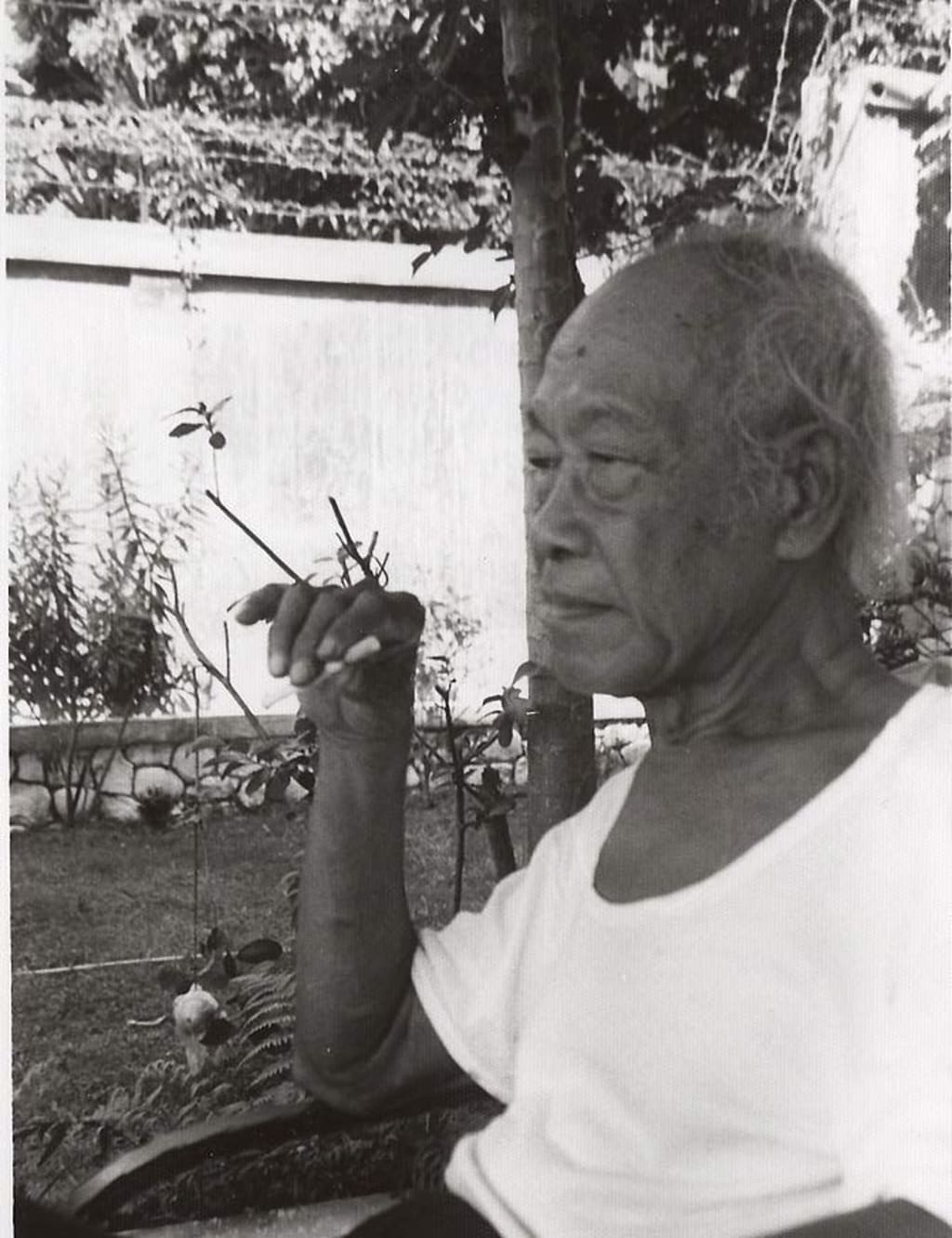Pramoedya, A Glimpse of the Legendary Indonesian Writer
A writer who won the Nobel Prize

Pramoedya Ananta Toer, a prominent Indonesian author, is celebrated for his profound contributions to literature, particularly through his novels that vividly depict the socio-political landscape of Indonesia. His works are not just literary masterpieces but also crucial historical documents that reflect the tumultuous periods of Indonesian history.
Born on February 6, 1925, in Blora, Central Java, Pramoedya grew up during the Dutch colonial rule. His personal experiences of colonial oppression, the Japanese occupation, and the Indonesian struggle for independence significantly influenced his writing. Pramoedya's narratives often explore themes of oppression, resistance, and the quest for identity and freedom.
One of Pramoedya’s most famous works is the Buru Quartet, a series of four historical novels: This Earth of Mankind, Child of All Nations, Footsteps, and House of Glass. These novels, written during his imprisonment on Buru Island without access to writing materials, were initially narrated orally to fellow prisoners. The Buru Quartet tells the story of Minke, a Javanese nobleman and a pioneering Indonesian journalist, who grapples with the injustices of colonial rule.
This Earth of Mankind, the first novel in the series, introduces Minke, who challenges the rigid social hierarchies imposed by the Dutch. Through Minke's eyes, readers witness the awakening of national consciousness and the seeds of rebellion against colonial subjugation. The novel's rich portrayal of Indonesian society, interwoven with historical events, provides a deep understanding of the cultural and political complexities of the time.
In Child of All Nations, the narrative expands to explore the broader impact of colonialism on different strata of Indonesian society. Minke's character develops further as he engages with various nationalist movements, highlighting the struggle for an inclusive Indonesian identity. Pramoedya's portrayal of women in this novel is particularly noteworthy, as he gives voice to female characters who challenge patriarchal norms.
Footsteps continues Minke's journey, focusing on his involvement in the early nationalist movement. This novel is a testament to Pramoedya's meticulous research and deep understanding of Indonesia's history. Through Minke's experiences, readers gain insight into the challenges faced by early nationalists, including internal divisions and external pressures.
The final installment, House of Glass, is narrated from the perspective of Jacques Pangemanann, a police officer tasked with monitoring Minke. This shift in perspective adds a layer of complexity to the narrative, offering a glimpse into the mechanisms of colonial control and the personal conflicts of those enforcing it. The novel delves into the moral ambiguities faced by individuals within oppressive systems.
Pramoedya's works are characterized by their eloquent prose, vivid characterizations, and incisive social commentary. His ability to humanize historical events and present them through compelling narratives has earned him international acclaim. Despite facing censorship and imprisonment, Pramoedya remained steadfast in his commitment to writing, using his pen as a tool for resistance and enlightenment.
In addition to the Buru Quartet, Pramoedya authored numerous other novels, short stories, and essays. His earlier works, such as The Fugitive and Corruption, also reflect his engagement with social and political issues. Throughout his career, Pramoedya was a vocal advocate for freedom of expression and human rights, often at great personal risk.
Pramoedya Ananta Toer's legacy extends beyond his literary achievements. He is a symbol of resilience and defiance against oppression. His novels continue to inspire readers worldwide, offering profound insights into the human condition and the enduring struggle for justice and dignity. Through his storytelling, Pramoedya has ensured that the voices and experiences of Indonesians during pivotal moments in history are never forgotten.
About the Creator
Enjoyed the story? Support the Creator.
Subscribe for free to receive all their stories in your feed. You could also pledge your support or give them a one-off tip, letting them know you appreciate their work.





Comments
There are no comments for this story
Be the first to respond and start the conversation.